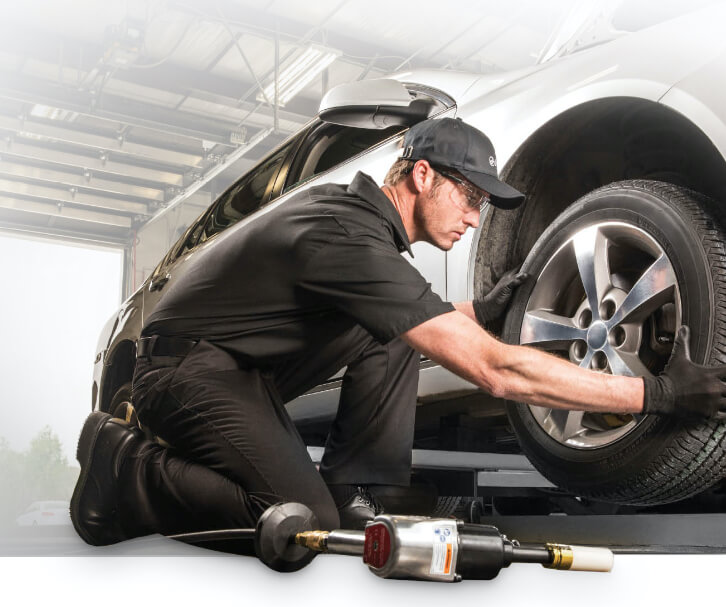Elevate Your Experience: Depend On Morris Tires for GMC Tires Service
Elevate Your Experience: Depend On Morris Tires for GMC Tires Service
Blog Article
Tire Solution: The Influence of Weather
When it involves guaranteeing optimum performance and safety on the roadway, comprehending the effect of climate condition on tire service is crucial. From scorching warmth to icy roadways, each climate element can significantly affect tire functionality and total driving experience. By delving right into the impacts of varying weather conditions on tires, drivers can gain valuable insights that might boost their vehicle's efficiency and long life. In this conversation, we will check out the complex connection between weather condition conditions and tire solution, clarifying the value of weather-specific tire maintenance techniques and considerations.
Warmth and Tire Performance
When subjected to high temperatures, tires experience changes in performance that can substantially influence lorry safety and handling. The heat generated from extended driving or hot weather condition problems causes the tire rubber to soften, leading to minimized walk life and increased wear. As the rubber becomes softer, the tire's hold when traveling reduces, impacting braking ranges and total grip. In extreme situations, excessive warmth can even create tire blowouts, posing a serious safety and security risk to the vehicle and its occupants.

Winter Effects
Cold climate conditions can have a considerable influence on tire performance and safety. As temperatures decrease, tire rubber can harden, causing decreased traction on icy or snow-covered roads. In cool weather, tires might likewise shed atmospheric pressure extra quickly, which can impact dealing with and gas effectiveness. Furthermore, cold temperature levels can create tire sidewalls to stiffen, increasing the risk of damages from gaps or various other roadway threats.
To minimize the effects of chilly weather condition on tires, it is essential to routinely inspect tire stress and inflate them to the supplier's advised levels. Making use of winter or all-season tires developed for winter problems can likewise boost grip and grasp on icy or snowy roadways. Appropriate tire maintenance, including routine inspections for wear and damage, ends up being even a lot more crucial throughout cooler months to make sure ideal efficiency and security.
Rainy Issues Impact
Tires with damaged footsteps are a lot more prone to hydroplaning, where a layer of water builds up in between the road and the tire surface area, leading to loss of traction. To combat this, vehicle drivers need to on a regular basis check their tires for appropriate tread deepness and take into consideration investing in tires specifically developed for damp conditions.
Furthermore, wet climate can also reduce exposure, making great site it challenging for motorists to see the road in advance plainly (GMC Tire Service). In such conditions, it is crucial to change driving speeds appropriately and keep a secure following distance to enable abrupt stops. Effectively filled with air tires can also assist in preserving control on wet roadways by providing far better handling and grasp
Snow and Tire Safety And Security
Snow-covered roads posture special difficulties for drivers, emphasizing the value of proper tire selection and maintenance. When driving in snowy conditions, having the appropriate tires can make a significant difference in safety and efficiency. Winter season tires are developed with unique rubber substances and tread patterns to offer far better grip on snow and ice contrasted to all-season tires. The much deeper treads and sipes of wintertime tires assist hold the roadway better, minimizing the risk of moving and slipping.

Moreover, vehicle drivers should think about setting up tire chains in severe snowy problems. Tire chains provide additional traction by clutching the snow and ice, boosting stability and control. Nonetheless, it is very important to adhere to supplier guidelines when mounting and making use of tire chains to avoid damages to the tires and car. By choosing the appropriate tires, maintaining proper inflation, and considering added traction aids like tire chains, motorists can boost their security when browsing snow-covered roads.
Weather-Related Tire Upkeep
Weather-related tire upkeep includes a variety of methods aimed at making certain optimum tire feature and long life in various weather condition circumstances. One vital aspect of weather-related tire upkeep is tire pressure law. Inspecting tire step Continued on a regular basis and replacing tires when step wear gets to a particular deepness is crucial for preserving grip and stability in negative weather.
Conclusion
In conclusion, climate conditions have a considerable influence on tire efficiency and security. From warm affecting tire stress and put on to chilly weather condition minimizing traction, it is essential to think about the climate when maintaining and making use of tires.
In this discussion, we will certainly discover the elaborate partnership in between weather condition problems and tire solution, shedding light on the value of weather-specific tire maintenance practices and considerations.

Report this page